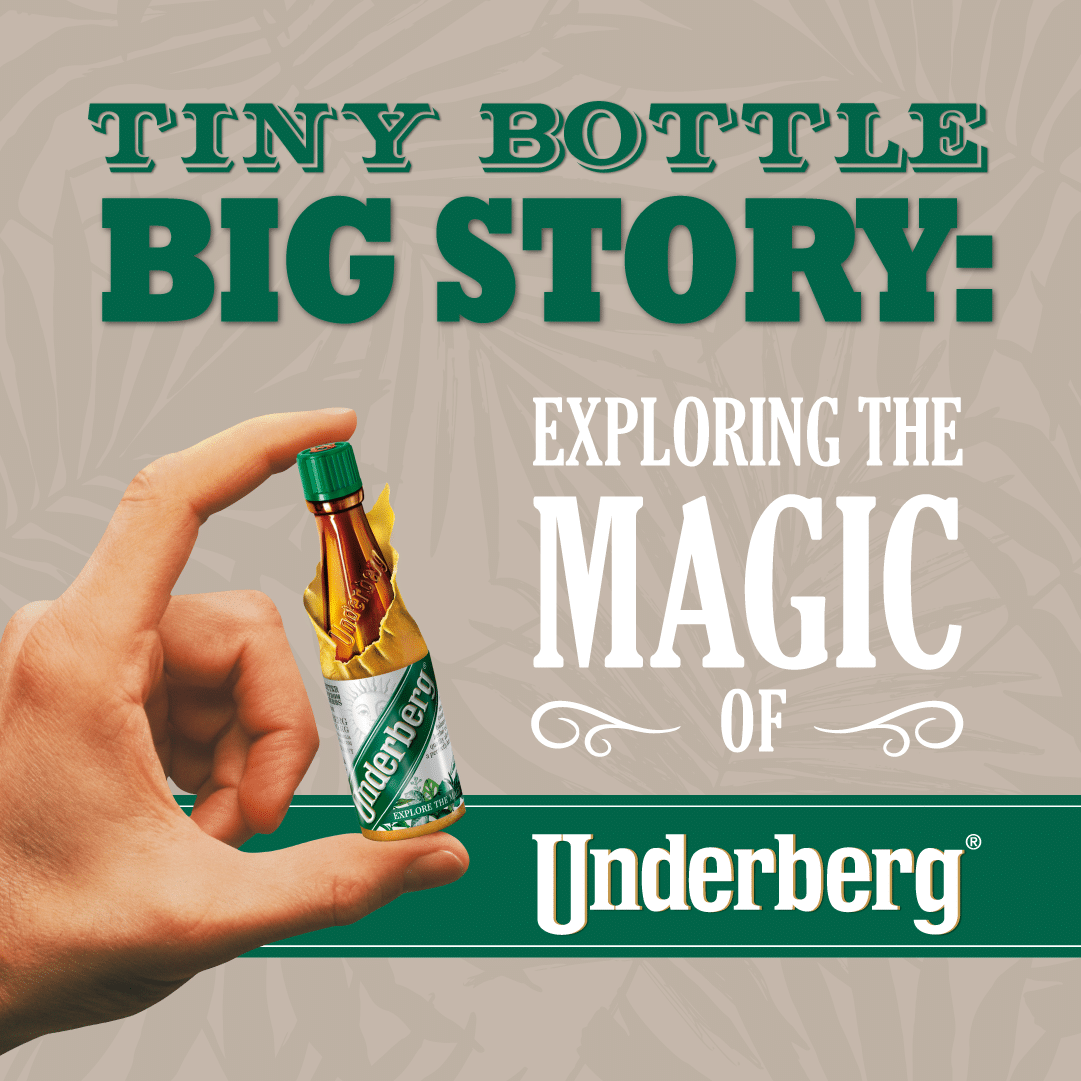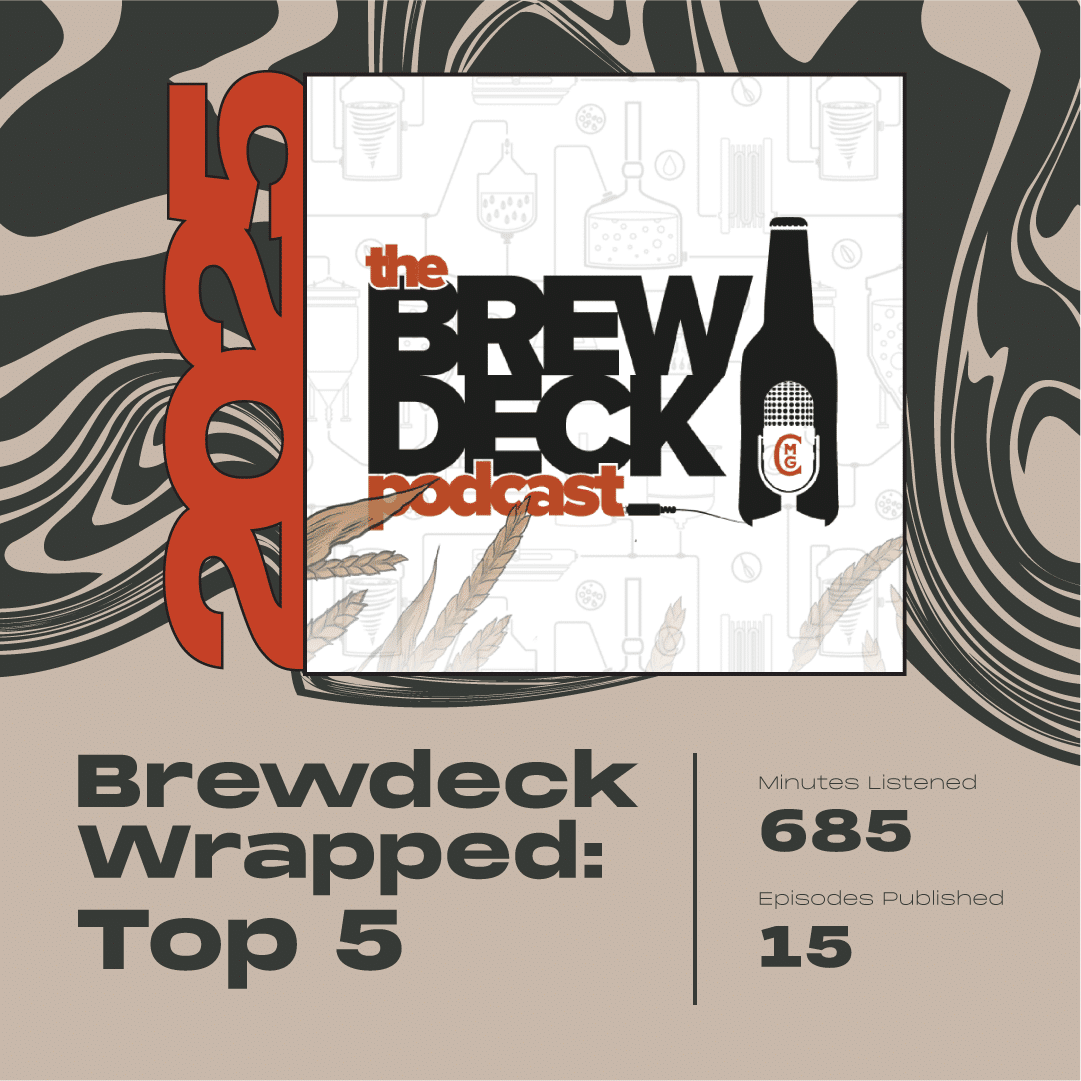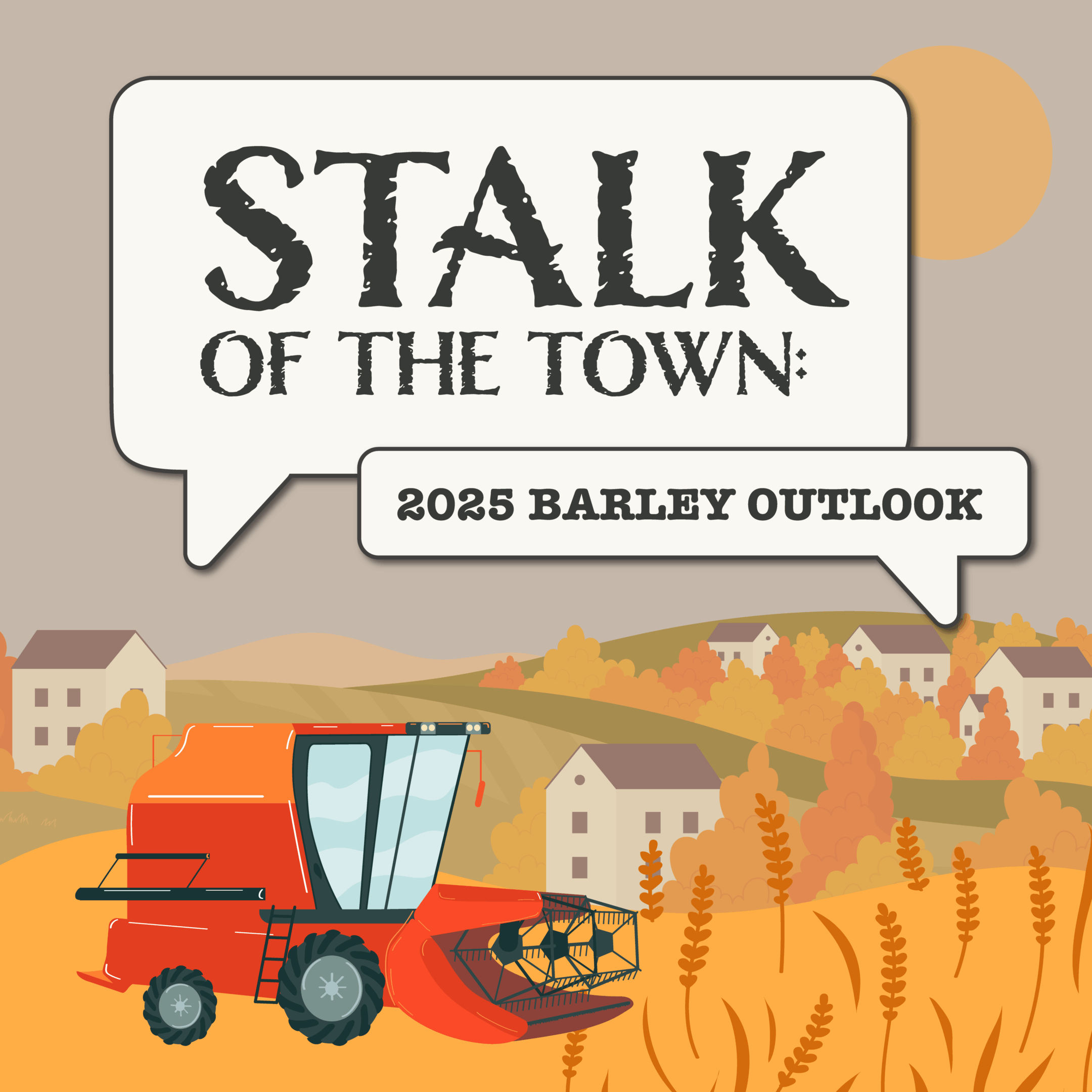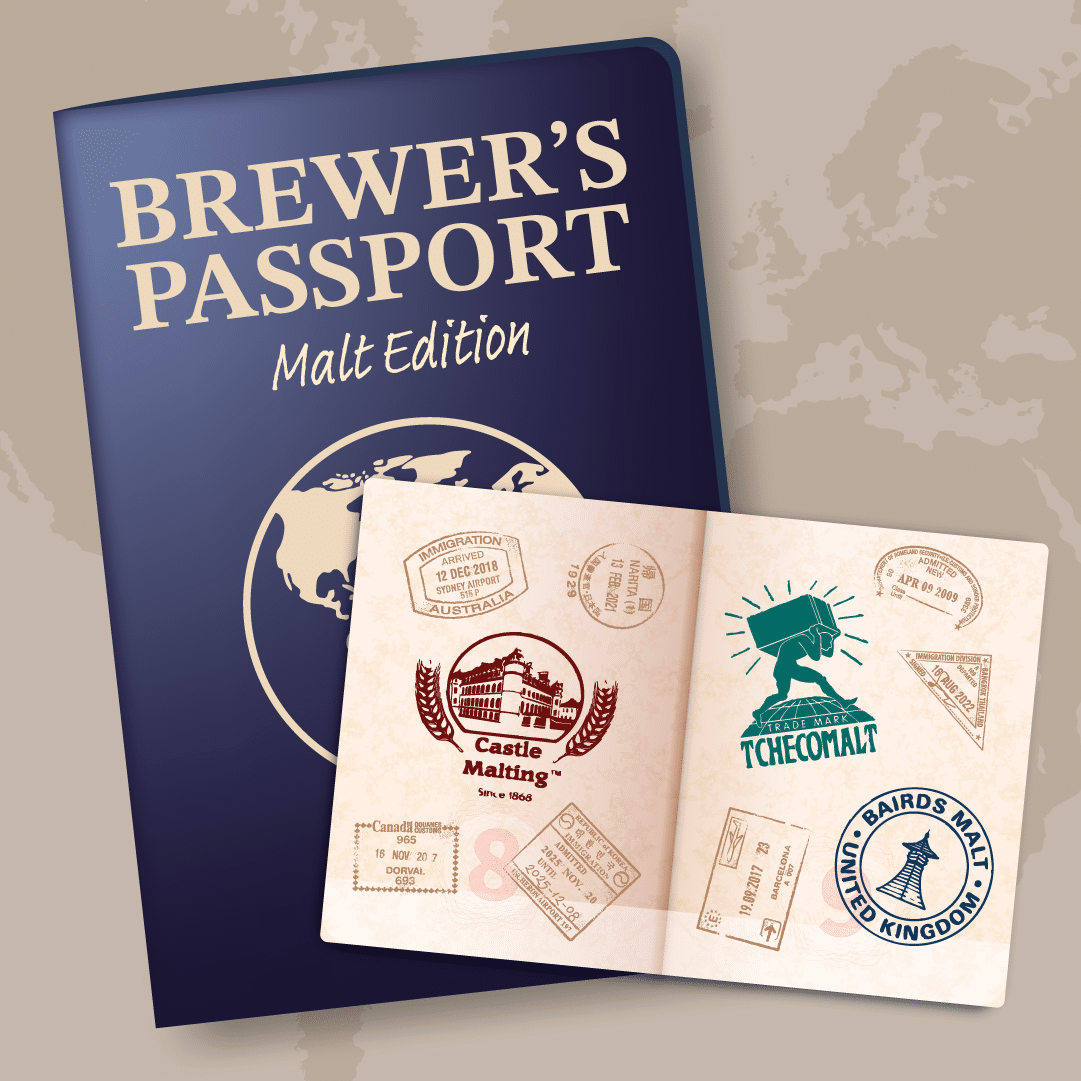
PODCAST LINKS
MORE EPISODES
SEASON 3, EPISODE 1: BREW YEARS RESOLUTIONS
PODCAST HOSTS:
GRANT LAWRENCE – TERRITORY MANAGER, COUNTRY MALT GROUP
HEATHER JERRED – TERRITORY MANAGER, COUNTRY MALT GROUP
ZACH GROSSFELD – SALES REPRESENTATIVE, COUNTRY MALT GROUP
Key Points From This Episode:
-
Brewery expansion involves more accounts, distribution, and people in tap room.
-
Bottles or Cans: Which are used or preferred more by brewers and beer buyers.
-
Environmental Impact: Preservation and sustainability matters to brewers.
-
Malt Harvest Forecast: Build relationships with suppliers to buy ingredients early.
-
Canning Problems: Make sure whomever is packaging your product can be trusted.
-
Growing Trend: Brewing more lager beer and less hazies.
-
Beer is pandemic-proof but you need to be more flexible to distribute where and when you can.
-
Top Priorities: Be profitable but work safely and conduct preventative maintenance.
-
Beer consistency makes a good brewery a great brewery for the long haul.
Transcript - Brew Years Resolutions
EPISODE S.3, E.1
[BREW YEARS RESOLUTIONS]
[00:00:00] GL: Happy New Year. We are back. We are excited for another season of the BrewDeck Podcast. Looking forward to kicking off 2022 with brew year’s resolutions. I’ve got a couple of folks from our team with me today. My name’s Grant Lawrence filling in for Toby Tucker. I’ve hosted a handful of times, but I’ve got some other folks from our crew. They’re typically in the background writing these things and helping us arrange guests. I’ve got Zach Grossfeld. Zach, how’s it going?
[00:00:27] ZG: It’s going well. Thanks for having me back on. I’m excited to talk about some brew year’s resolutions.
[00:00:34] GL: Yes. I’ve also got a relatively new—Heather joined our BrewDeck Podcast here a few months ago. Heather, would you like to tell us a little bit about yourself?
[00:00:43] H: Hi, guys. Thanks for having me. I’m happy to join the podcast team. My name is Heather. I am the Sales Territory Manager for Western Canada for Country Malt Group. So I get to be on the Canadian side of this team. I’ve been in the Country Malt Group for almost three years now.
[00:00:59] GL: Good to have you, Heather. As we mentioned, today’s episode is about brew year’s resolutions. The Country Malt Team, we put a note out, a little APB to our customers and asked them if they had any brew year’s resolutions for 2022. We got some interesting responses back and thought we would read them today and discuss them a little bit.
I’ll go ahead and launch right into it. Our first one comes from Timothy Lucien Shore, I hope I’m saying that correctly, at Buried Acorn Brewing Company in Syracuse, New York. His resolution was to throw a barrel-aged beer fest in Ithaca, New York at his farm and call it Farm Funk Fest. Pretty cool. His biggest brewing lesson that he learned in 2021 is that bottles still sell. That’s kind of a surprise to me. I see a lot of people using cans, but I’m glad to hear that 22 oz bombers aren’t dead. I mean, certain styles in my opinion just work better that way. What are you all seeing in your parts of the world Heather? Zach?
[00:02:08] H: I definitely see a lot of people moving away from bottles, so that is a little surprising for me to see. A lot of people are moving a lot more towards cans just on the preservation of the beer alone.
[00:02:22] GL: Sure. Just the sustainability of it. Maybe it has something to do with the fact that aluminum cans are so hard to get lately.
[00:02:31] H: Definitely. They’ve become a lot more difficult.
[00:02:34] GL: Yeah.
[00:02:35] ZG: We’re seeing a lot of special releases still coming out in either the 16.9 oz bottles or the 22 oz bottles, which I’m personally a fan of because you fill up a glass, and then you have a little bit of an extra treat at the end after the glass.
[00:02:49] GL: Good point.
[00:02:51] H: Good cork and cage are always nice.
[00:02:53] GL: Yes. To me, that makes a special release just that much fancier. It’s a little harder to pull off, it takes more time, but certainly worth it in my opinion if you’re doing like a size on or something bottle conditioned.
[00:03:06] ZG: Yeah, absolutely.
[00:03:09] GL: Well last off, the last thing that we asked the brewers that listen to our show is, if they like to give a shout-out. Funny enough, Timothy Lucien Shore of Buried Acorn Brewing says, he’s planning the Farm Funk Brew Fest, so he’s just going to send it I guess June 2022 with international mixed fermentation breweries, cideries, and wineries. Very cool.
[00:03:34] H: That sounds awesome. I kind of want to go to a farm funk fest.
[00:03:38] GL: Yeah. I’ve never been to Upstate New York, Ithaca area. I thought that would be pretty cool, but there’s some good cider there as well.
[00:03:46] H: The next one comes from Alexis Esseltine at Tin Whistle Brewing in Penticton. What they have learned throughout the year is that you can make a great beer with less impact. The biggest brewing lesson they’ve learned—this is really interesting because they became one of the first certified carbon neutral breweries in British Columbia, which is really cool. They’ve just learned that you can make really good beer, still be carbon neutral, and make less impact on the environment.
[00:04:14] GL: Excellent. I think that’s something we could all use more of. I guess it takes a lot of CapEx for the infrastructure of your brewery to be set up that way, but it seems like it gives back dividends. I mean, not only is it good for the planet, it’s also good for business. It’s just a neat thing to market.
[00:04:36] H: They’re in a really unique area too. Penticton is in the Okanagan in BC, and it’s a great fruit-growing region. It’s obviously very close to the Canada Malting Plant in Calgary. They really are super fortunate with being able to cut down on emissions and in sourcing local ingredients.
[00:04:53] GL: Did you say grapefruit?
[00:04:55] H: Great fruit growing. Great fruit. Lots of good fruit in the Okanagan.
[00:05:02] GL: Awesome. Okay.
[00:05:04] ZG: Yeah, I think that’s so cool and to have someone that I’m going to be looking to after this as a leader and someone who’s done it, kind of gone through that process of becoming carbon neutral. I think that’s really great.
[00:05:17] H: Yeah, it’s awesome.
[00:05:18] GL: Heather, I think you look after that customer. How do they do that? How do they approach that? Is it wind, solar, or a combination?
[00:05:27] H: A combination of a lot of things. I kind of went on to the website to get the full—what you can do, go to their website and get the full breakdown on their environmental impact audit. What they really found they were losing the most points on and a lot of it is transportation, which I think we all know is just a big issue. Really looking to cut down on the distance that they’re shipping things in from, and they’re also looking to go full electric for their delivery vehicles, which is also a pretty good temperature area. We could do a lot of cars in this area that is electric.
[00:06:01] GL: Electric delivery vehicles, love it. Full-blown bread trucks or is it like—
[00:06:09] H: They’re looking at transitioning all their vehicle fleets to electric and hybrid options. They are using a lot more local suppliers to decrease the travel emissions. When they do their delivery routes, everything has to be grouped very specifically. They’ve looked at the material that they’re using. Again, cans are obviously a big one, using PakTechs and reusing them versus just tossing them. They did a take-back program with that. It’s small batch brewing versus large scale brewing.
[00:06:42] GL: Okay. PakTech, I feel like they’re pretty widely used at least where I’m at, but you’re right. Not everybody does a take-back program. That’s a really good idea.
[00:06:52] H: I know. They did a big pilot program up in Calgary as well. The brewers in Calgary did. You could bring back all your PakTech and not too much to reuse them. They would actually give them back to PakTech and I think they make new ones out of them, they just had to recycle them. But like I said, I used to work at a beer store, we used to do a take-back program for PakTech and just reuse them for people who make their own six-packs. They’re super easy to reuse.
[00:07:15] GL: Yeah, they’re pretty stout.
[00:07:19] H: If you want to follow along Tin Whistle’s journey on Instagram they’re @thetinwhistle on Instagram.
[00:07:26] ZG: Good deal. Our next brew year’s resolution comes from Polly […]. Again, apologies if we get any of these names pronounced incorrectly. But Polly is coming from Route 66 Old School Brewing in Wilmington, Illinois. They are a tiny nano-brewery in the Chicago Beer Stein. Their brew year’s resolution is they want to expand the brewery. That means more accounts, expand distribution, and have more people coming into the taproom.
The biggest brewing lesson they learned in 2021 is making sure they have a good supply chain. They said they’re really having fun as a brand new brewer and don’t have the goal of winning any awards, just trying to be humble and I guess serve some good beer to some good people.
[00:08:16] GL: Yeah. Short and sweet, who doesn’t want to expand and get more in the taproom, that’s to be sure, especially after these last two years.
[00:08:24] ZG: Yeah. I’m sure a lot of people are seeing, walking down that supply chain, making sure you’re planning with enough time, getting the right ingredients, and the right time frame is so important and I think a challenge for a lot of not only new brewers but well-established ones as well.
[00:08:41] GL: It’s a pretty tough thing to plan for. This just-in-time thing versus ordering early, a lot of it hinges on your distributor. When your distributor pays you, that can be the struggle. But I guess as long as you plan for it when you start your brewery, you’ll be in a better spot to plan to have just cash on hand to be able to buy early, right?
[00:09:05] ZG: Yeah. I mean in my experience, just having that relationship with the person you’re getting your ingredients from because at the end of the day, we’re all just people in these positions trying to figure things out and communication’s only going to help everything. Definitely encourage that back and forth.
[00:09:23] GL: Forecast with your suppliers when you’re able to.
[00:09:27] ZG: Definitely.
[00:09:29] H: That can be everybody’s new brew year’s resolution—forecast, forecast, forecast.
[00:09:34] GL: Especially with the way import stuff has been lately, it’s just a mess. Hopefully, it’s better this year. I’ll roll into the next one. The next one comes to us from Jake at Maize Valley Brewery in Hartville, Ohio. Jake’s brew year’s resolution was he’s hoping to get some canning line. He’d like to get away from using a mobile canner and have a little more control over the package quality of his product.
The main thing that he learned this year was to make sure to use lots of rice hulls and some enzymes and that Imperial stout mash that’s 50% specialty malts, oats, and adjuncts, or else, you’re going to have a bad time. I couldn’t agree with that more. I mean, the mobile canning thing, those are great. It’s a great way to get your foot in the door, but at the end of the day, the person that’s making sure that your packaged product that cares the most is you, the person brewing it. It’s going to be tough.
The mobile canners, you really have to trust them. They don’t always have the best equipment, so sometimes using them for a little while, learning from the weak spots, and when you believe in it, go for it yourself and get your own […] meter or whatever your packaged O2 measuring devices can really help, in my experience.
[00:10:54] ZG: Yeah. I think mobile canning is a really important need in the market. I have gotten myself out of a pinch more than a few times. But at the end of the day, it’s a canning line that is on the back of a truck getting rattled around. I mean, even from just those little pieces that are part of it, just having a home and not getting jostled around, there can be a lot of benefits in dialing in your own system.
[00:11:23] GL: That’s a good point, Zach. You’re saying you used it supplementally to your own packaging operation, is that what I’m hearing?
[00:11:34] ZG: Yeah, absolutely. For small special releases or collaborations. We also did it if we didn’t want to infect our bottle line or canning line with a particularly wild beer. It was a little bit easier to work with their system.
[00:11:50] GL: Good point. Yeah. That can always be kind of scary.
[00:11:53] ZG: Yeah.
[00:11:55] GL: His next point about using the rice hulls, he’s saying make sure to use lots of rice hulls and some enzymes. Better safe than sorry, right? Rice hulls, a little bit goes a long way really. It’s kind of neat how easily they work. They take up a lot of space on a pallet that’s for sure. You kind of have to jump on them or do something to break them up. They’re so tightly packed, but they make a big difference when you’re doing like an Imperial stout-like he mentions.
[00:12:24] ZG: Yeah. When you’re sitting there with a stock Imperial stout mash, you’re going to really be wishing that you had taken that little bit of extra time to brew those rice hulls in there.
[00:12:33] GL: For sure.
[00:12:34] H: When in doubt, throw in the rice hulls.
[00:12:36] GL: Yes, exactly. When in doubt, throw in the rice hulls. It’s kind of neat. I think the rice hulls, a lot of them come from sort of my neck of the woods. They’re like your big rice processing plants for the ones that keep the rice hulls and then bag them up for brewers. I want to say the ones that we have, the Country Malt, brings in it from rice land. I think it’s in Arkansas. Don’t quote me on that.
The shout-out that Jake at Maize Valley would like to give is he says they have an awesome barrel age program on tap while they last. He says, “Visit Maize Valley on all social media and at www.maizevalley.com.” Thanks, Jake. Ready when you are Heather.
[00:13:17] H: All right. We’ve got Shawn Adams at Akronym Brewing in Akron, Ohio. I love that name, by the way. I’ve read that earlier, I really liked it. The start off is very near and dear to my heart, grew more lager beer. I would love to see more lager beer on the market.
[00:13:34] GL: Yes. Same.
[00:13:36] H: I think I’m ready to move away from nonstop hazies and I would love to see some more lagers on the market. Some more really well-made lagers on the market.
[00:13:45] GL: I think that’s been a growing trend over the past year or two easy. It seems like every corner of the country is starting to do more lagers. We did a podcast I guess this past summer about different types of pilsners and it was a huge hit. Cool that it’s making its way out there.
[00:14:07] H: Yeah. That one has my full support. Their new brew year’s resolution is to be more flexible. They’re a mostly taproom-focused brewery, but they do need to look for opportunities to distribute when available. That’s very good advice for some of the smaller ones. I think we really saw that through COVID, how important it is to be able to distribute where you can, when you can with things shutting down.
[00:14:38] GL: Yeah. A couple of the breweries around me here in Houston were able to hold on by basically delivering their own beer to a few local accounts, and that really helped them kind of weather the storm.
[00:14:55] H: Yeah. Lastly, he said they are going to be opening a new brewpub called Akronym Pilot Brewing and Public House in the spring in Medina, Ohio so go check them out when they get that open.
[00:15:09] ZG: Yeah. The next brew year’s resolution we have is from Larry Horwitz at Ten20 Craft Brewery in Louisville, Kentucky. His resolution is to be profitable but still work safely. This was a huge challenge I think for a lot of breweries around the country. I know we had the episode a while back where we talked about some of the crazy things that can happen in a brewery, and yeah, it’s always good to keep it on your mind and to work safely around the brewery.
[00:15:42] GL: For sure. I think what he’s getting at is you have to be brewing every day. You can’t get behind, so it’s a real tight rope you have to walk between that and safety. But safety should always come first.
[00:15:56] ZG: Absolutely. Something else they learned from the last year is another supply chain shout-out. If you’re working just in time for your supply chain, you won’t be on time. This was taken to the extreme to the point where they were starting to look at items that are must-haves and planning 3–6 months in advance and also shipping out cans because of that pesky aluminum. It’s a little tough to get your hands on.
[00:16:23] GL: That’s a good point. I’ve seen a lot of breweries doing this lately. The ones that are blessed to have that extra storage space in their facility, they’re just stockpiling certain things. Whether it’s import specialty malts, cans are the obvious one. But I would say it goes beyond cans like certain varieties of hops. Maybe there’s one particular imported specialty malt that they’re in love with for their recipes and they just buy—
[00:16:54] H: Fruit purees. Before the summer, fruit purees.
[00:17:00] GL: Gosh. Those have been in short supply.
[00:17:02] ZG: I know being out here in the northwest and having that immediate access to all the hop farms, a lot of breweries like to push that to the limit and see what the new fun hops are. But I think there’s a lot of value in also locking down whatever your backbone hops are going to be and not just relying on what you’re able to get a moment’s notice, even though you are 20 to 30 minutes away from somebody’s hop farm.
[00:17:27] GL: Good point. Good points all around.
[00:17:29] ZG: Yeah. They want to shout out that they opened up a satellite location. If you’re in the Louisville area, go check them out.
[00:17:36] GL: Number seven, Kyle at Dog and Pony Show Brewing in Oak Park, Michigan. That name’s pretty awesome. Dog and Pony Show, I like that. His brew year’s resolution is to buy a canning line. Funny seeing that again and again here and produce over 1000 barrels this year. That’s definitely a neat milestone to hit, a thousand barrels a year when you know things are serious. The main thing that he learned in 2021, he says, “Patience and empathy are key, but a good pilsner helps.” Right back to that lager shout-out.
[00:18:15] H: Amen.
[00:18:18] GL: He says they’ll have their first run of barrel-aged beers this year around March. They’re trying to break their record of $10,000 raised this year from Rising Hope, which for those other listings that don’t know, Rising Hope is the charity that Country Malt and a couple of other vendors do with the National Pediatric Cancer Foundation. We do it every year. We’re going to do it again this year. Good luck to Kyle there. I hope he raises that money.
[00:18:45] H: Awesome. My next one is from Rich Nunez at Radical Effects Brew Works in Rock Island, Illinois. “To stay relevant in this ever-growing market of tried it, now who’s next?” I find that interesting. Do you guys have your set of tried and true, these are beers that I’m going to drink all the time, or are you constantly on the lookout for what’s new and what’s next?
[00:19:11] GL: I think I’m a little guilty of, I’m probably trying less of this past couple of years with the lockdowns and I have ones that I go back to. I’m still adventurous, don’t get me wrong. But it used to be that I would go to the store and buy four different beers and now it’s like two maybe. I mean, go back to the one that I had been drinking over the past couple of years since it’s been around for me is just St. Arnold H-Town Pilsner. I just love that beer, but I’m always trying new things.
[00:19:44] ZG: Yeah. I would say that I am more tried and true in relation to breweries. If I see one of my trusted favorite breweries has a new style, a new beer out, or something like that I’ll always try it. I think I am guilty of cycling through those. But I think it’s one of the most exciting things ever when you try a new beer and it’s from a new brewery, it’s somewhere out of marketers, or whatever it may be and it’s something that you know is going to make it into your future rotation.
[00:20:14] H: Yeah. Agreed. Rich’s new brew year’s resolution is […] COVID. Also onboard for that one.
[00:20:25] GL: Very succinct.
[00:20:26] H: Yeah. Straight to the point.
[00:20:30] GL: I think a lot of people have that same sentiment.
[00:20:35] H: That’s oddly been mine for the past year.
[00:20:40] GL: You just get tired of it.
[00:20:41] H: I want more lagers and […] COVID.
[00:20:45] GL: For sure.
[00:20:47] ZG: Yeah. Our next brew year’s resolution is from Jerry Siote at Lone Tree Brewing Company in South Metro Denver, Colorado. He has kind of a small one. It’s just to win small Brewer of the Year at GABF and shotgun a double IPA to celebrate. Be sure to write us in.
[00:21:04] H: Send videos.
[00:21:06] ZG: Absolutely. We’ll do it with you. Does either of you two have any memorable GABF experiences?
[00:21:15] GL: Well yeah. I want to touch on that when you mention the shotgunning thing. This is in my area that I met, there’s actually a huge Facebook group of by and large mostly brewers. Ever since COVID happened and people can’t hang out as often as they’d like to, they do like a Shotgun Friday Facebook group where they just basically record a short video of them shotgunning a beer and bond over that. I think it’s pretty awesome. I guess my question for you all is does that happen in […]? Is that a thing?
[00:21:55] ZG: I mean I would say that I would commit to shotgunning a double IPA if Lone Tree Brewing wins that award this year because that would be awesome. I can’t speak to shotgunning in particular, but the brewery I was at previously had an Irish Car Bomb ritual for pre-GABF for good luck. My goodness, was that something that I never want to do again.
[00:22:23] H: Was it ever good luck? Are Irish Car Bombs ever good luck?
[00:22:28] ZG: Yeah, it must have been because they kept doing it.
[00:22:30] H: That’s awesome.
[00:22:32] GL: Zach, I’m drawing this out of my mind, you would just do this at some local bar in Denver right before the award show or something?
[00:22:42] ZG: Yeah. Either at a wonderful dive bar or at a pop-up table back at the brewery, if you didn’t make it out to Denver. Yeah, it’s always a terrible, terrible memory.
[00:22:54] GL: Very nice. It turns out, for those of us that are interested in history, I think it’s pretty obvious but don’t ever order one of those if you’re in Ireland, just a pro tip.
[00:23:09] ZG: If you do order them, drink them quickly before […] happens.
[00:23:14] GL: Black in […], also equally offensive from what I hear.
[00:23:19] ZG: Yes. Good luck, Jerry.
[00:23:21] H: I haven’t shotgunned a beer, I think, since I was 21. I don’t have much on that, but I’m not opposed to it.
[00:23:31] ZG: That sounds like a healthy position.
[00:23:34] GL: Jerry’s thing is short here, but I mean winning small brewery of the year is no small feat. I mean, that requires a lot of things to fall into place. I’m pulling for you, Jerry, and I’ll shotgun a beer, absolutely, if you win.
[00:23:50] H: I’m rooting for Jerry. I will absolutely shotgun a beer if Jerry wins, so let us know.
[00:23:56] ZG: It sounds like we’re team, Jerry. This is great.
[00:23:58] GL: That’s right.
[00:24:00] ZG: Or team Lone Tree, whichever one. Something they learned in the previous brew year is, “In the end, this is a tiny planet and we’re all connected.” They have a saying at the brewery, “Everything’s our problem, so just fix it.” I really, really like that.
[00:24:15] GL: Yes.
[00:24:16] ZG: Yeah and building off that, he also had a joke that he wanted to share. You guys will have to excuse my timing on this because it’s not a strength of mine but here we go. The Dalai Lama walks into a pizzeria. The guy at the counter asks what can I get you? The Dalai Lama replies, I’ll have one with everything.
[00:24:36] GL: Nice.
[00:24:37] H: I like it.
[00:24:40] ZG: Put a pause for laughter there. That’s Jerry at Lone Tree.
[00:24:46] GL: It’s a really good point that he also makes it about being all connected. We’re seeing that more than ever before. We’ve already touched on the canning problems and the malt harvest wasn’t so great. I mean, really, I feel like things are just really heavy on craft brewers right now. We are all connected and we’re suffering a little bit this past year. I think 2022 will be better.
[00:25:17] ZG: I couldn’t agree more.
[00:25:19] GL: The next one is from Kyle McCloud at Back Paddle Brewing in Lincolnton, Georgia. Kyle’s brew year’s resolution is to double our brews, begin construction on phase two, and a collaboration beer with Pontoon Brewing. Excellent. The things that he learned in 2022, the number one thing was be ready for those end-of-year expenses. I couldn’t agree with that more. It all kind of comes to head there at the end of the year. The collaboration point is good. I’d like to see more of that. I was hoping that more of these would have some kind of excellent collaboration wish and get a brewery bromance thing going on.
[00:26:01] H: That might be a fun list to try and put together, everybody, to put your wish list of whom you want to do a collab with.
[00:26:07] GL: Maybe we could do that for a future episode, but Pontoon Brewing, if you’re out there listening to this, hit up Kyle at Back Paddle Brewing. He wants to make beer with you. Lastly, he’d like to say that they’ll be hosting their first-ever #beer4goodmusicfestival. A portion of the proceeds will go to local charities. All right. Thanks, Kyle.
[00:26:30] H: Awesome. The next thing we have is from Tom Kehoe at Yards Brewing in Philadelphia. They would like to have the maintenance team actually get a chance to do regular maintenance and not just fix things after the fact.
[00:26:45] GL: Yeah.
[00:26:46] H: Preventative.
[00:26:47] GL: Preventative maintenance. I feel like at the brewery that I was at formerly, they had a great group preventative maintenance program. It was just on the Friday checklist. You couldn’t go home for the weekend until you did the PM checklist. I realize now that not every brewery does that. I feel like it kept us running really smoothly. You definitely notice the things that you weren’t typically looking for until you really dug into them.
We had a complicated brewhouse, but doing the PMs every Friday, you got a good feel for how much you go through things like greasing the lauter tun rakes or refilling the salt in the brine tank for the RO system. It was just good. Good call out, Tom.
[00:27:37] H: Yeah. It leads back to the safety aspect of it too we’re talking about before. You’re going to have less of those oh […] moments.
[00:27:45] GL: Right. One of the ones we would do is we would do a deep clean on the grain room. Every Friday, in the mill room as well, you clean up all the dust and things like that. From a safety aspect, you don’t want any dust to build up. All that stuff is very flammable. It was a good time.
[00:28:09] H: I had to watch those safety videos when I started canning and malting, dust is combustible.
[00:28:17] GL: Oh, yeah.
[00:28:18] H: I like this one too. Nothing makes people fall in a brewery more than strategically placed rubber rats. Please respect your staff so that you can have fun with them with rubber rats. I think I would like to see photos of the strategically placed rubber rats, Tom.
[00:28:35] GL: Yes. I like that.
[00:28:36] H: A shout out for them. They are looking forward to their next beer in the arcade series release. It’s called Star Jockey, and it’s going to come complete with its own downloadable video game.
[00:28:50] GL: That’s awesome.
[00:28:50] H: That is awesome.
[00:28:51] ZG: That is so cool.
[00:28:53] GL: I hope it’s a simple platform or something is what I’m picturing in my head.
[00:28:59] ZG: I hope it’s the most complex game that’s just going to take over.
[00:29:06] GL: It’s basically like Pokemon Go or something like that.
[00:29:10] ZG: That would be so cool.
[00:29:11] H: That would be cool. Star Jockey.
[00:29:14] GL: I’d be looking for that one.
[00:29:16] ZG: This is the last one we got for the day. Our final brew year’s resolution is from Ian Burnett at Brown Truck Brewery in High Point, North Carolina. Their resolution is, “To try and stay consistent in an ever-changing craft beer market. Be willing to stick to the basics, but have the ability to turn on a dime and shoot from the hip.” That sounds very North Carolina the way that was put.
I think beer consistency is one of those things that make a good brewery a great brewery. I’ve definitely gotten lucky on a recipe. I made a beer and it turned out amazing. I have no idea how to replicate it. If you’re able to have consistently amazing beer, I think that’s what makes you a truly great brewery.
[00:29:59] H: That’s going to make you a long-running brewery too.
[00:30:02] GL: For sure.
[00:30:04] ZG: Build that trust.
[00:30:06] H: Keeps people coming back.
[00:30:07] GL: Whenever you say consistent to me in craft, the first thing that comes to mind is the Sierra Nevada. I feel like they’re just the gold standard. They’re always good. I love the colloquialisms as well, shooting from the hip, is that not something you’ll say in the Pacific Northwest?
[00:30:24] ZG: Not in Portland Oregon. Okay, that’s not fair.
[00:30:30] H: I don’t think Canada has taken that one either.
[00:30:32] GL: No? All right.
[00:30:33] H: No.
[00:30:36] GL: Awesome.
[00:30:37] ZG: Something they’ve learned from last year is that beer is apparently pandemic proof as well as recession-proof. I think it was a study that I’m sure a lot of people have seen. Luxury items tend to go down in a recession.
[00:30:50] H: Alcohol doesn’t.
[00:30:52] ZG: No, it does not.
[00:30:53] GL: Yeah. My demand for beer is pretty elastic. I don’t remember which one of those. Maybe I’m mixing them up.
[00:31:02] ZG: I mean hopefully, that’s what a lot of breweries are experiencing, that people are still wanting to drink your beer. I know we talked about the distribution thing a little bit ago, but if there are any local breweries in your area that will drive a truck out and deliver some beer either to a shop near you or even to your front door, support those breweries because they make great beer, probably.
[00:31:26] GL: Yes.
[00:31:27] ZG: A little bit of a tease for their upcoming news, but they have a big announcement coming up that they’re very excited about, so keep an eye out for that from Brown Truck Brewery in High Point, North Carolina.
[00:31:39] GL: All right. Well, I want to thank everybody who shared their brew year’s resolution with us this year. We sure did learn a lot last year in 2021. In closing, I’d like to mention that Country Malt, Great Western Canada Malting—as we’re transitioning to a new crop, which is happening right now—just want those out there listening to be aware of the incoming changes to your malt specifications.
This year’s crop will have higher protein levels that increase in kernel variability, we’ve seen in recent years. That’s not really just for us, that’s basically any maltster that’s pulling barley out of North America. But the good news is that you can still make quality beer from the malt. At this point, a bunch of breweries has already brewed with it. Things have been mostly good. We’ve said it before, but we’ll say it again, it’s important to keep an eye on your COAs. Whether you’re using our malts or someone else’s, definitely be watching COAs as they switch over from the 2020 crop to the 2021 crop.
Country Malt actually just released a 2021 crop mitigation strategies white paper that’s on our website. The marketing team, myself, and the rest of our team really dug deep. We want to help you brewers out there listening and try to lead you in the right direction to help you get the most you can out of your malts. Be sure to check it out. Reach out to your sales rep if you have any questions.
This is the opener for season three. We have a bunch of new guests, a bunch of new topics planned this year. Don’t miss out. Next episode, smoked beer. I know that’s kind of a wild topic. If you’ve got questions, we’ve got answers about smoked beer on our next episode.
If you haven’t already, be sure to subscribe to the BrewDeck Podcast wherever you listen to podcasts. You can email us if you have questions or smoked beer, something about the show, or anything else. You could email us at thebrewdeck@countrymalt.com. See you next time.
[END]












